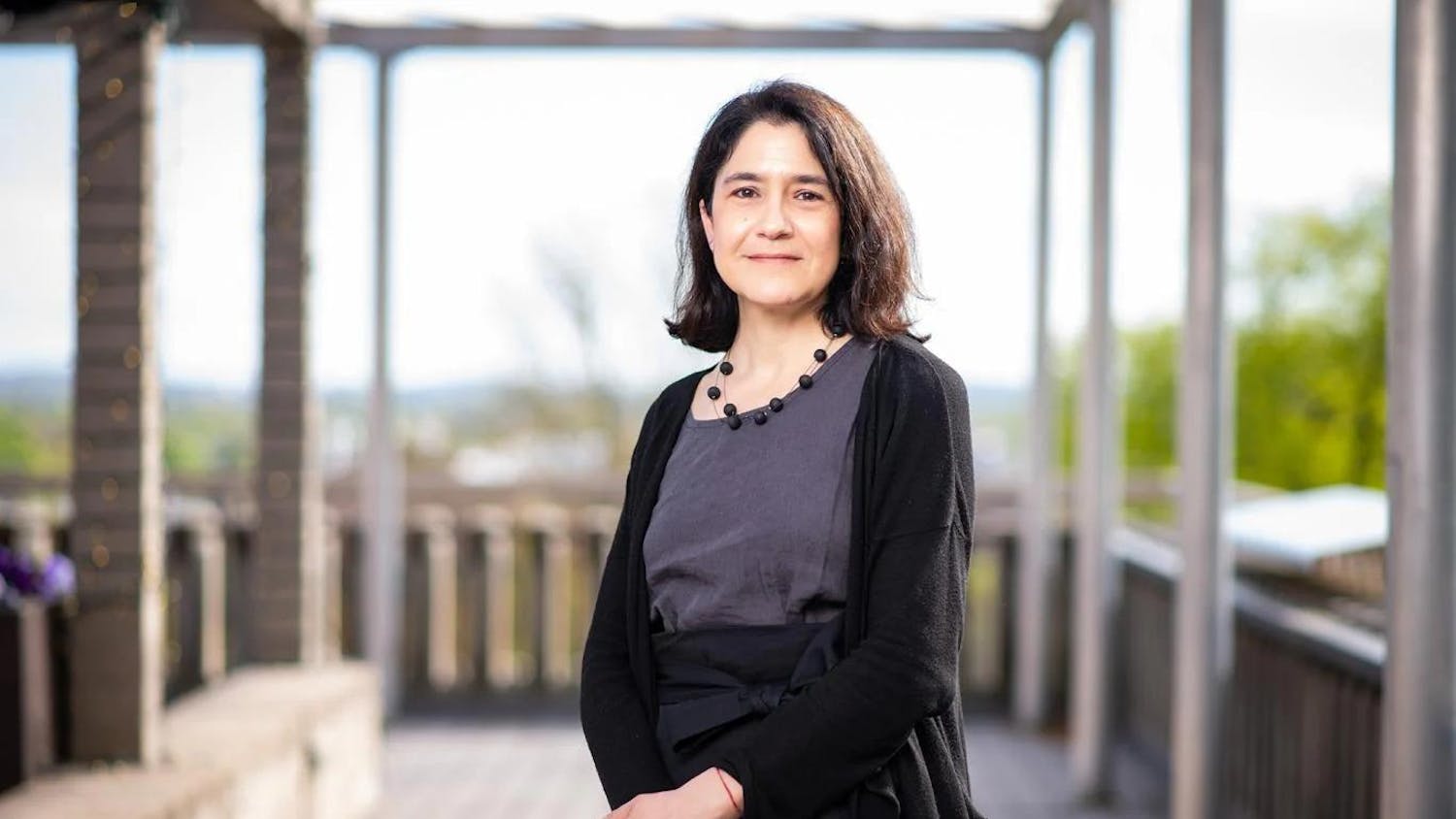Four Tufts faculty members gathered in the Alumnae Lounge last night for the America's Women Panel, where they discussed the ascension of women into the political sphere.
The event, organized by Kappa Alpha Theta and the Panhellenic Council, featured panelists History Professor Virginia Drachman, Assistant Psychology Professor Jessica Remedios, Associate Political Science Professor Natalie Masuoka and Nancy Thomas, director of Tisch College's Institute for Democracy and Higher Education.
The panel began with a discussion on why political office in the United States is generally male-dominated, with women barely taking up 20 percent in most leadership roles, according to Thomas.
Remedios approached the question from a psychological perspective, arguing that there is a conflict between the stereotypical image of a politician and the traits with which women are typically socialized.
Drachman added that the arena of politics has historically been seen as a place exclusively for men. She noted that, through the concept of "municipal housekeeping," women marketed their perceived differences from men as evidence that women were well-suited for public service.
"Women have had to figure out a way to break in and become a palatable, if not the preferable, candidate," Drachman said.
Masuoka also argued that women are as active, if not more active, than men politically. Thus, she said, the issue is not necessarily that women are not interested in politics, but that stereotypes hold back women from further involvement.
To eliminate barriers for women in politics, Drachman said that women in powerful roles should support each other. Remedios agreed, saying that research supports the claim that strong female representation in politics encourages more women to enter the field.
Thomas added that many women in Congress make a conscious effort to support each other vocally, which allows women already in powerful positions to counteract discrimination.
When the conversation was brought to the topic of Democratic presidential nominee Hillary Clinton, Masuoka noted that the conversation about gender in the presidential race has focused mainly on sexual harassment, which is not particularly empowering.
Remedios pointed out that women have a tradeoff between portraying confidence and portraying warmth. For that reason, she argued that when Clinton tries to appear confident, she is often seen as cold and calculating.
Panelists also said that the intersections between gender and other characteristics cannot be neglected.
"The assumption that ... the Obama coalition would just transition into the Clinton coalition was a major error on the part of the Democratic Party," Masuoka said.
Later in the event, the panelists took questions from the audience. Most audience members were interested in the panelists' perspectives on the presidential race.
When asked whether the panelists thought Clinton has used gender to her advantage, Drachman pointed to Clinton's work to identify herself as a mother and an advocate for children, and Remedios lauded Clinton's discussion of abortion rights.
The event ended with a discussion of what should come next in the political sphere. Drachman and Thomas reiterated their arguments about the need for women to support each other, and Masuoka said that further research into the issue will help women to be more successful in politics.
Earlier in the panel, Remedios said that even if the nation chooses to elect its first female president on Tuesday, continued discussion on the topic is necessary. She cited the fact that some people thought racism would end with Obama's election.
"We need to figure out how to better have those conversations, or else the divide after the achievement of these historic milestones could widen rather than narrow," Remedios said.
America's Women Panel discusses female representation in politics






